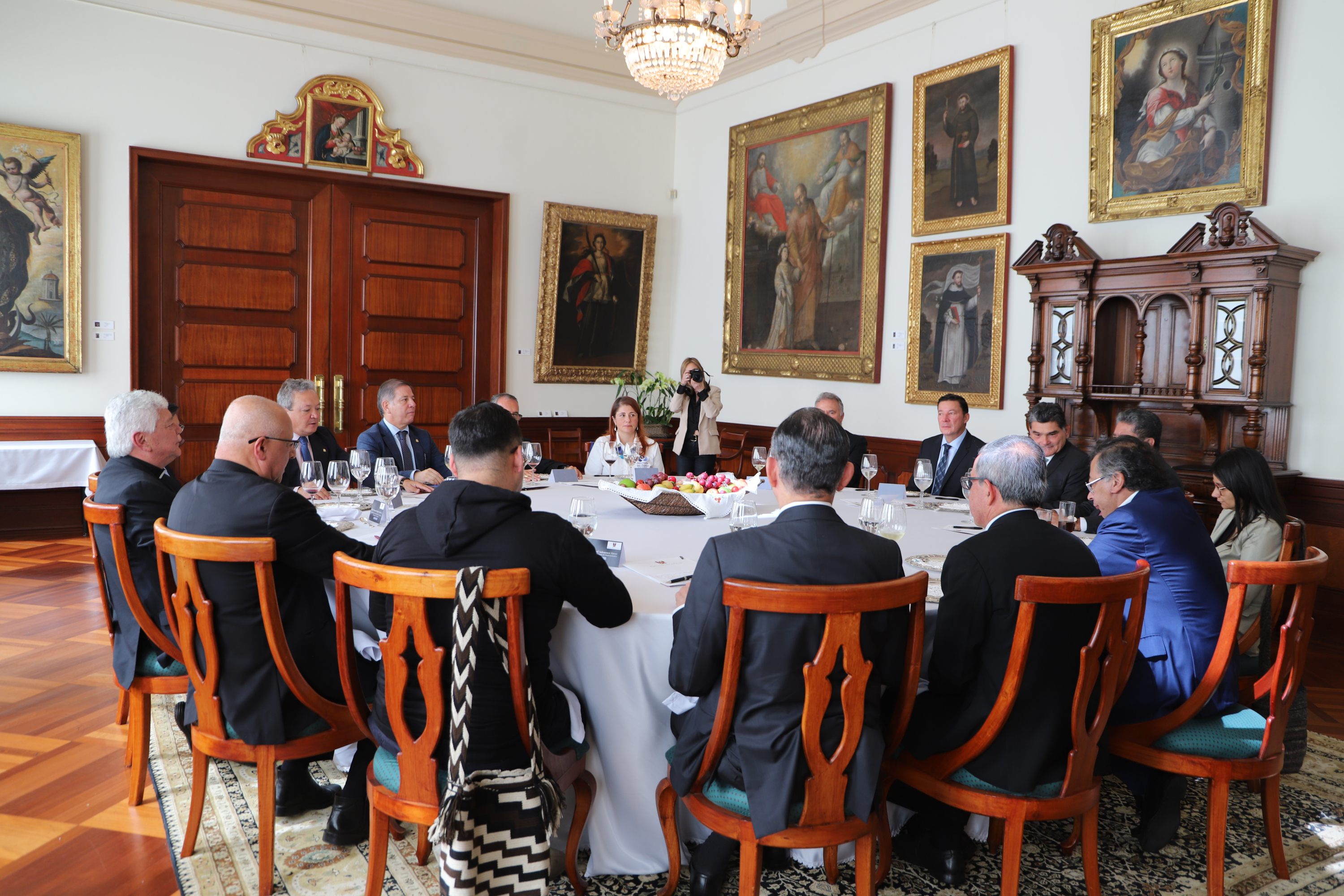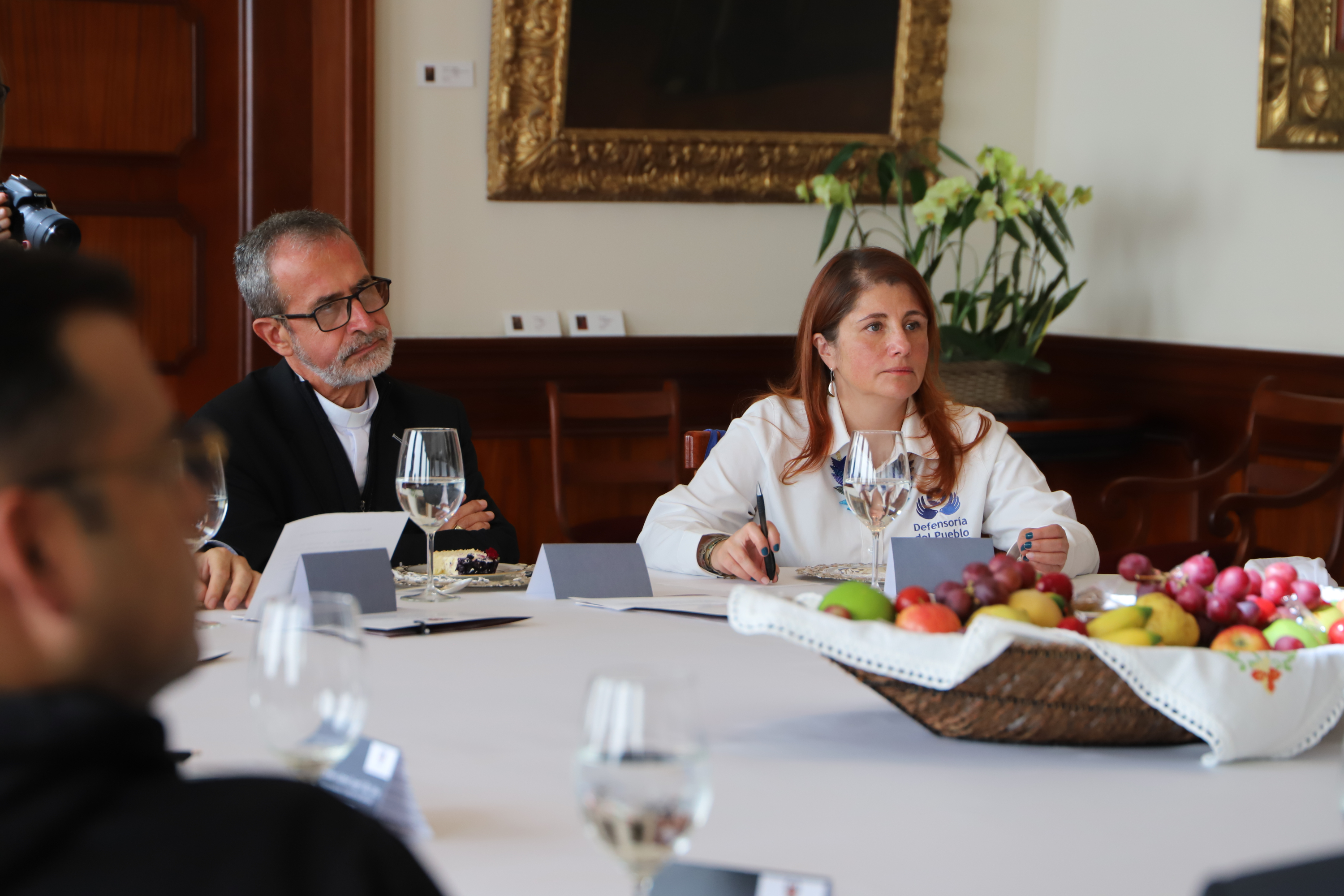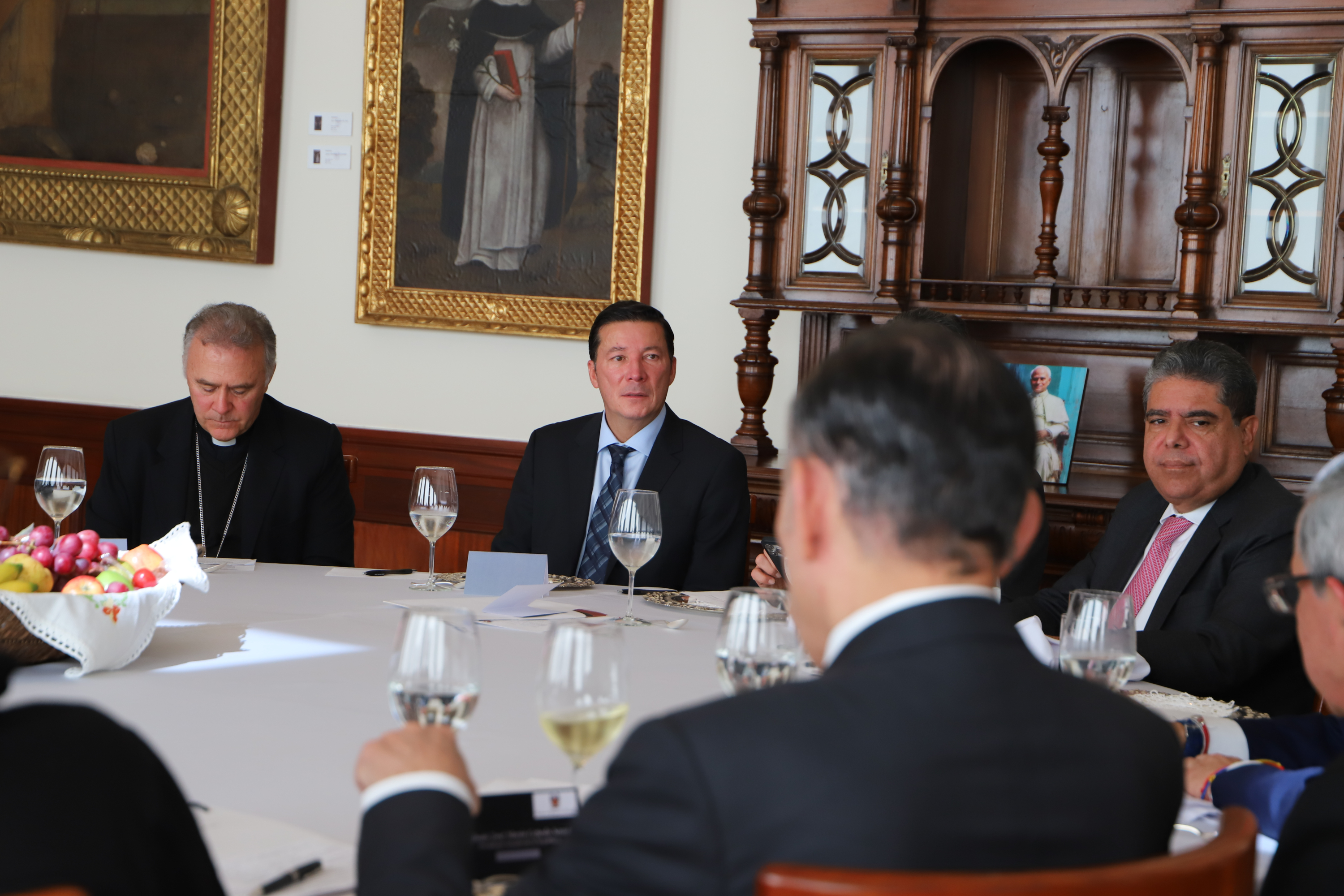What were the commitments of the President, Congress, and court leaders in their meeting with the Church?

For more than two hours yesterday, President Gustavo Petro and his main political adversary in recent years sat at the same table: Senator Efraín Cepeda, president of Congress, whom the head of state has repeatedly accused of being one of the masterminds of the alleged "soft coup."
At the request of the Episcopal Conference, Petro, Cepeda, the Speaker of the Chamber, Jaime Raúl Salamanca, and the heads of the Cortes and the oversight bodies signed a three-point document in which they pledged to make real efforts to lower the tone of political confrontation and respect their opponents.
The summit of powers, which took place in the context of the attack on Senator and presidential candidate Miguel Uribe Turbay and a day after thousands of Colombians came out to support the so-called "March of Silence," took place at the Archbishop's Palace, on the eastern side of the same Plaza de Bolívar that has been the scene of marches called by the government and the opposition to test their strength.

Meeting between the Government, Parliament, and Congress, sponsored by the Church. Photo: Episcopal Conference
“In a global, national, and local context of profound tensions, contradictions, and transformations, as citizens, servants, and representatives of the institutions of the Colombian State, we commit ourselves together and invite the entire country to listen to, value, and respect one another in brotherhood; to disarm and harmonize our words; and to reject all forms of violence as a way of resolving political and social conflicts.” This is the thrust of the declaration, which was signed by the institutional heads, the head of the Dapre (National Action Party), Angie Rodríguez, and representatives of the Church, led by Cardinal Luis José Rueda.
In addition to Petro, Cepeda, and Salamanca, the presidents of the Constitutional and Supreme Courts, Jorge Enrique Ibáñez and Octavio Tejeiro, attended the meeting and signed the document; the president of the Judiciary Council, Jorge Enrique Vallejo; Attorney General Gregorio Eljach; Registrar Hernán Penagos; Public Defender Iris Marín; and Comptroller General Carlos Hernán Becerra. The president of the Council of State, Luis Alberto Álvarez, who was attending an event in Manizales, and Prosecutor Adriana Camargo, who was on an international visit, apologized.
"The commitment is to de-escalate language and promote respect for opposing ideas," one of the meeting attendees told EL TIEMPO. The signing of the joint document was highlighted as a step forward amid the sharp increase in public statements in recent days.
"We call for hope to be kept alive in our country and invite these kinds of gatherings to be replicated wherever necessary," the statement reads, also offering prayers for Uribe Turbay's life.

Francisco Múnera, president of the Episcopal Conference, and the Ombudsman, Iris Marín. Photo: Episcopal Conference
This week's events will determine the solidity of the agreement to dismantle the word. Discussions on labor reform, which was suspended yesterday due to the senator's worsening health, decisions pending before the Constitutional Court on pension reform, and the investigation by the National Electoral Council (CNE) into alleged violations of limits during the presidential campaign, as well as the investigation by the National Registry into compliance with the "decree" for the referendum, are on the immediate agenda.
Thus, although the Government expected Registrar Penagos to immediately set the electoral machinery in motion for the referendum vote on August 7, several sources told this newspaper that he is considering requesting a preliminary opinion from the Consultative Chamber of the Council of State, given the Executive's unprecedented move to bypass the Senate's "no" vote on the referendum. Furthermore, as this newspaper reported on Saturday, the Court would be going against the Government's position on the subsequent oversight of the referendum and will even discuss whether to apply precautionary measures to halt the initiative while they make a final decision.
Analysts consulted by this newspaper emphasized the value of the meeting, but say they must wait for the facts. "The first thing that needs to be analyzed is whether it will truly be respected. It remains to be seen what gestures of goodwill will result from this signing," said Yann Basset, a professor at the Universidad del Rosario. Analyst Jairo Libreros noted that "consensus on the need for this agreement is one thing, but turning the consensus into reality is another."
According to those present, the meeting was conducted with complete cordiality: "We were pleasantly surprised because the atmosphere was very friendly (...) and that can make a difference," said Monsignor Francisco Javier Múnera, president of the Episcopal Conference. He added that "all the guests signed with commitment and responsibility."

Registrar Hernán Penagos. Photo: Episcopal Conference
Attorney General Gregorio Eljach also offered a positive report. “It brings peace and calm to dismantle the word, as the declaration says,” he said. According to Eljach, the opportunity served to “reflect on the country's situation and the need for dialogue to build consensus.”
The declaration does not imply specific commitments, as Senator Cepeda pointed out from the outset. He said that his presence at the meeting was "a sign of commitment to dismantling and harmonizing speech," but he reaffirmed his demand for respect for "the decisions and autonomy of public powers, pillars of democracy."
“Each entity has its responsibility. Everyone is clear about respect and about building and strengthening institutions. Everyone is a servant of the Magna Carta,” said Monsignor Francisco Múnera.
eltiempo





